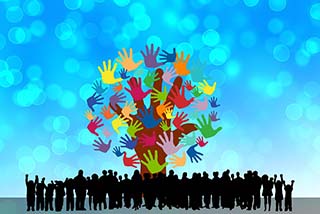This workshop will provide an overview of significant issues nonprofits should address when working with paid staff and volunteers. Topics covered include:
- Who exactly is an “employee”, “volunteer”, and independent contractor
- Overview of onboarding and performance management as risk mitigation tools
- Charitable immunity protections for volunteers
Christine Michelle Duffy
Christine Michelle Duffy is Director of the New Jersey Program of Pro Bono Partnership (https://www.probonopartner.org/about/staff/christine-michelle-duffy). Prior to joining the Partnership, Christine initially was in a private law practice for 12 years, where she focused on labor and employment law and appellate advocacy. Then, for 12 years, Christine was the chief compliance officer and chief labor and employment counsel for an international group of environmental services companies.
Christine has served on the boards of several organizations, including the Board of Directors of the New Jersey Chapter of the Association of Corporate Counsel, the Board of Visitors of Fenway Health, the Advisory Board of Seton Hall Preparatory School, and the Editorial Board of the New Jersey Law Journal. Christine is editor-in-chief and contributing author of the groundbreaking Bloomberg BNA treatise Gender Identity and Sexual Orientation Discrimination in the Workplace: A Practical Guide (www.bna.com/bnabooks/giso). In 2017, the treatise Employment Discrimination Law and Litigation recognized Christine as a leading theorist in the area of employment discrimination law.
Pro Bono Partnership provides free transactional legal services to charitable nonprofits serving the disadvantaged and enhancing the quality of life in neighborhoods in CT, NJ, and NY. Each year, the Partnership mobilizes and supports hundreds of lawyers from leading corporations and law firms who volunteer their legal expertise on behalf of our clients, enabling them to more effectively feed the hungry, house the homeless, promote the arts, protect the environment, and provide essential programs to, among others, children, the elderly, immigrants, the disabled, and the unemployed.

